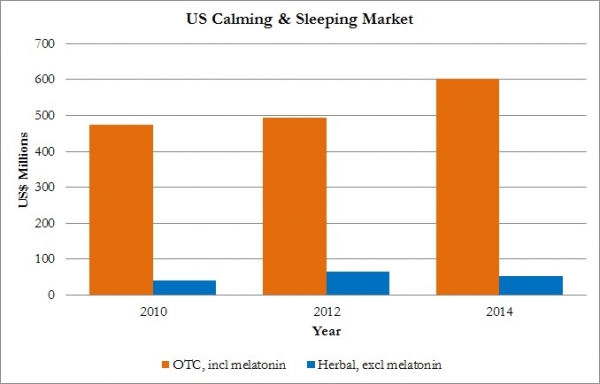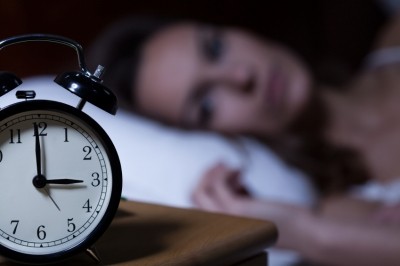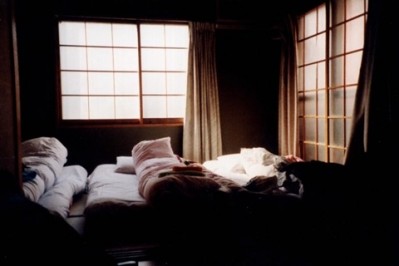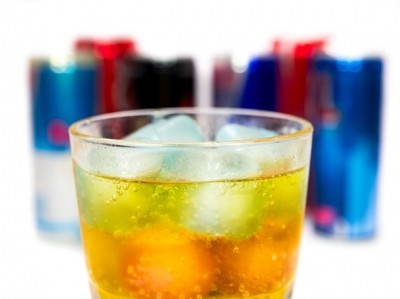Sleep: Consumers are looking for natural alternatives, but what's holding the category back?

Researcher Dr Michael Grandner from the University of Pennsylvania knows sleep better than many, having spent his academic career studying it. “Sleep is involved in a very large number of physiological processes,” he told attendees at the CRN’s Day of Science in November. “Sleep is critical for healing and recovery. The less sleep you get, the more impaired you are. And the deficits are cumulative.”
“Awareness of the importance of sleep is growing, and the motivation to get better sleep is growing,” he added.
Data from the Datamonitor Consumer 2014 survey found that “insomnia” was tied for the fourth most prominent health issue of American consumers ranked by percentage, coming in behind stress, tiredness and fatigue (which itself is related to sleep), and allergy.
“Across all age groups, 34% of American women say they are concerned about insomnia now, versus just 26% of men,” said Tom Vierhile, Innovation Insights Director for Datamonitor Consumer. “By age group, middle-age women are the most worried about insomnia.”
‘The majority of the consumers for these products are in CVS and Walgreens’
Daniel Wallace, CEO of NutraClick, told us that his company saw potential in the sleep category in late 2010, and its second major product launch was positioned for that category.
The company’s Somnapure Natural Sleep Aid product now commands the largest store retail footprint of any of its other products. The product is formulated with a combination of ingredients, including valerian root, L-theanine, hops, chamomile, melatonin, lemon balm extract, and passion flower extract.
“Somnapure launched really well in GNC,” he said,” but the majority of the consumers for these products are in CVS and Walgreens.”
“The problem with the category is that it is really diversified in terms of the user base,” said Wallace. “The number and type of people who want to find solutions is really varied.”
But such a diverse consumer base does have advantages. “As we spin out to other retailers it doesn’t hurt existing ones,” said Wallace. Somnapure is now available in retailers such as Walmart, CVS, Walgreens, GNC, Harris Teeter, and Meijer.
The market

Natural sleep aids experienced a few years of good growth, until P&G’s ZzzQuil launched in 2012 to become a $134 million brand almost overnight. P&G quickly took over the category lead with a 22% share of value sales, according to Euromonitor International.
“P&G came in with Zzzquil and took the majority of the market share,” observed Wallace. “Natural products have to compete with large CPG and pharma.”
Of the current $602.4 million market for calming and sleep aids, about 25% ($151 million) comes from branded calming and sleeping products containing analgesics, including Tylenol PM, Advil PM, Excedrin PM and most recently Aleve PM, explained Mark Strobel, Consumer Health Analyst with Euromonitor.
Other branded standard sleep aids, including ZzzQuil, most Unisom products, Simply Sleep, drive the majority of sales in the category, with approximately US$232 million, while private label accounts for another US$168 million.
By far the smallest portion of sales comes from herbal/traditional calming and sleeping products, said Strobel, accounting for $52 million in 2014.
“Herbal/traditional calming and sleeping aids and supplements containing melatonin have actually posted declines in both 2013 and 2014,” he said. “While natural and herbal calming and sleeping remedies continue to grow in popularity among certain consumers and are perceived by some as safer with fewer side effects relative to other standard sleep aids with pharmaceutical ingredients, these herbal/traditional sleep aids suffered -20% declines in retail value sales between 2012 and 2014.
“The rise of new, standard products like P&G’s ZzzQuil and the return of brands like Johnson & Johnson’s Simply Sleep and Novartis’s Excedrin PM have been too much to overcome. However, as the growth of standard products, like ZzzQuil, begin to plateau, more consumers may turn back to natural products that they perceive to be less addictive and have fewer side effects like residual drowsiness and grogginess.”
‘There are a lot of products on the market but it’s difficult to recommend many of them’
And if natural products are to get back to 2012 levels or more (see chart above), then the industry and academia must “demonstrate that some of these things work”, said Dr Grandner.
“There are a lot of products on the market [in the supplement space] but it’s difficult to recommend many of them,” he said during his presentation at the CRN event.
The elephant in the room for sleep ingredients is melatonin. “Most people have heard of it but don’t really know what it does,” said Dr Grandner. “It’s a hormone that the brain uses to tell your body that it is night. Light affects it.”
Numerous dietary supplement products can be found in retailers across the country, with many giving the direction to take 30 minutes before bedtime. Such directions are wrong, according to Dr Grandner. “The ideal time to take melatonin is 9-11 hours before your peak sleep,” he said. “It’s not a sedative.”
Valerian
Another key player in this sector is valerian (Valeriana officinalis), an herb that contains gamma-aminobutyric acid (GABA), a neurotransmitter, and may also increase GABA release.
“Valerian contains GABA,” said Dr Grandner, “but it doesn’t cross the blood-brain barrier. However, valerian has been evaluated in a lot of studies.”
Indeed, a 2010 meta-analysis of 18 randomized clinical trials involving valerian’s potential sleep benefits (Sleep Medicine, Vol. 11, pp. 505-511) concluded that, “the qualitative dichotomic results suggest that Valerian would be effective for subjective improvement of insomnia, although its effectiveness has not been demonstrated with quantitative or objective measurements. Nevertheless, its use can be considered for some patients given its safety.”
Other ingredients with varying degrees of support include tryptophan, chamomile (“There is a glaring absence of clinical trial data in humans,” said Dr Grandner), hops (“They do have active sedative properties”), tart cherries, vitamin C (lower levels associated with shorter & more disturbed sleep, he noted), magnesium, potassium, sodium, and selenium (lower levels associated with less sleep), and iron (linked to restless leg syndrome).
“It’s a time of great opportunity for natural products in the sleep category,” said Dr Grandner. “And there is a tremendous opportunity to leverage science to move beyond old wives’ tales.”

















